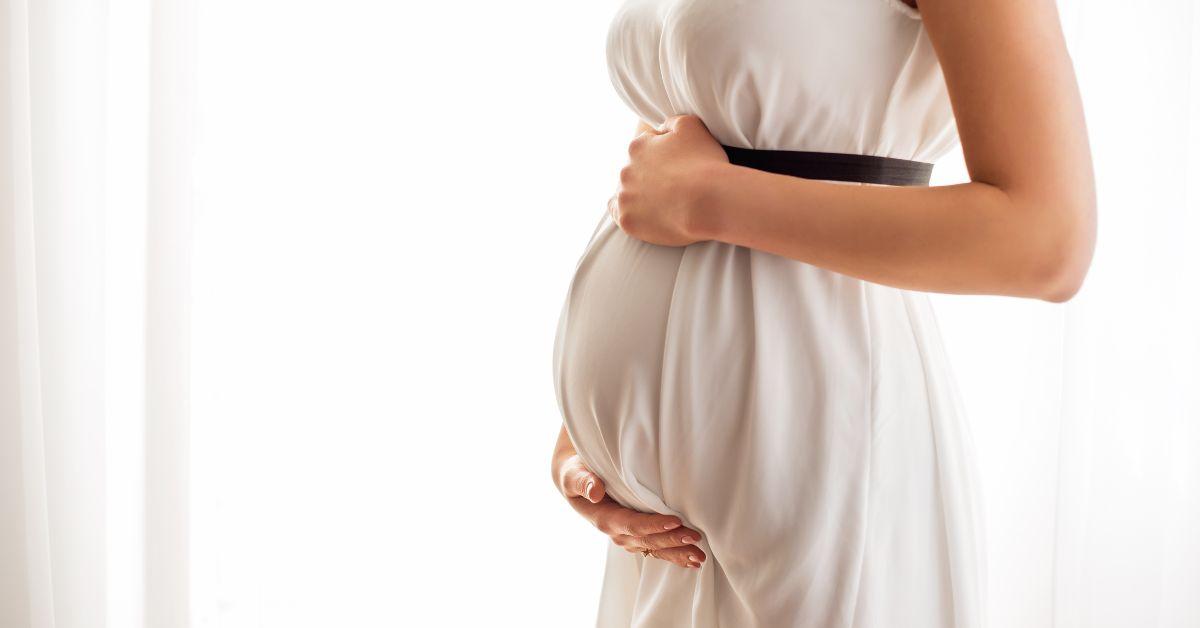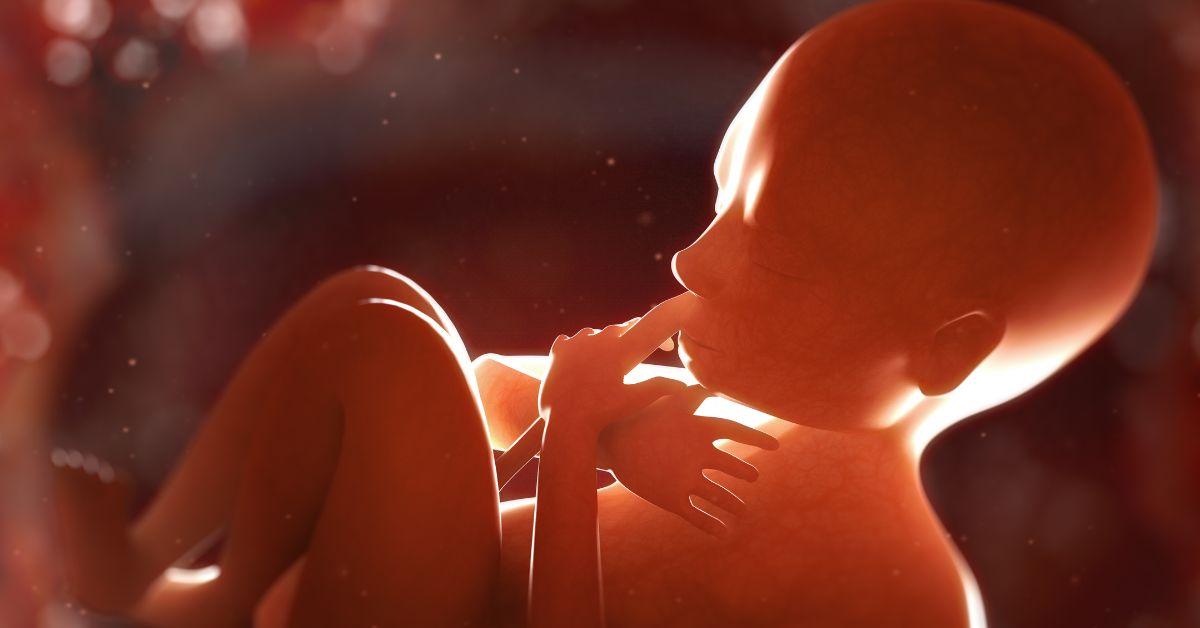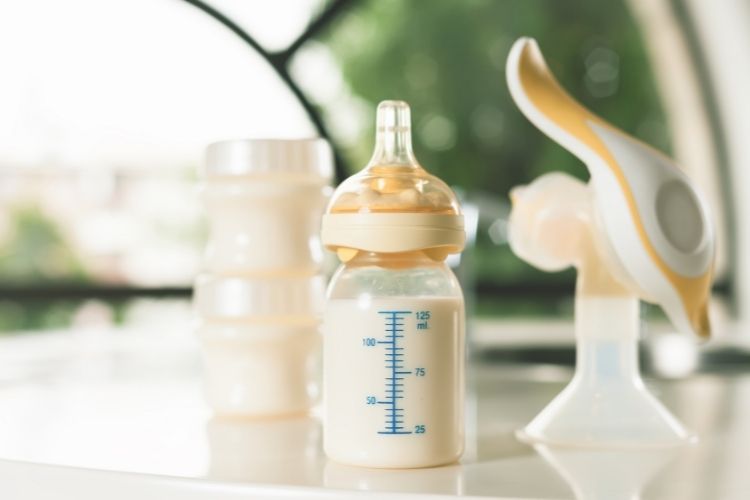A Detailed Guide To Pregnancy For New Mothers
Pregnancy is a life-altering experience for any woman. Additionally, if you are new to this, you probably have a lot of questions and concerns running through your mind. New mothers frequently have doubts about what to anticipate throughout the various phases of pregnancy. Its important for their to have right guide to pregnancy.
Actually, nine months seems like a short amount of time to get ready for the future. To make the most of this brief time you must follow some advice. The most important things to remember are to eat healthy, exercise frequently, avoid heavy labour, and get regular checkups.
Besides, there are several other things that you need to know about your pregnancy. As a new mother, it can be challenging to accept the changes as you have never experienced them before. So, you need a detailed guideline on what to expect and how to avoid mishaps. This article will enlighten you in detail about all these facts. So, keep reading!
Pregnancy: A New Chapter Of Your Life
If you are reading this context, maybe you are already a newly pregnant mother, or perhaps you are trying to get pregnant. Basically, pregnancy is a whole new world. Once you step into this world of motherhood, there is no turning back. You get to learn many new things, and you know how to adapt to specific changes.
Each day of this nine-month-long journey will come with a new challenge. In fact, every single day will teach you more about motherhood and make your relationship with your growing child stronger.
However, if you are not pregnant yet, and trying to get pregnant soon, you must know it is the most amazing phase of a woman’s life. It completes you as a woman and teaches you all the things you would have never learned. Actually, there is no other joy that can replace the happiness of a new mother! So, are you ready for this?
To be fair, the pre-pregnancy period is a lot different than pregnancy. Once you conceive, you experience many physical, mental, and physiological changes in your body. In fact, coping with these can be tricky without great care and support.
So, during this time, surround yourself with extra love and care. Do things that are good for your baby. Most new moms don’t know what they are doing, which eventually harms the baby. So, you must learn about your responsibilities during this time and accept this phase happily.
Consult A Doctor
Of course, the earliest sign of pregnancy is a missed period – that’s for sure. Most women get scared about being pregnant after they experience a missed period following unprotected intercourse.
However, only a missed period cannot be an affirmative sign of pregnancy. Many women pass the entire nine months without even going for a single antenatal visit. It is hazardous for your unborn child. Most of these women end up with nasty complications and, worst of all, abortions and Intrauterine Foetal Deaths (IUFD).

So, whether your home kit has given a positive result or you have experienced only a missed period, you must see a doctor and confirm your pregnancy.
Also, the doctor will advise routine tests to screen for the diseases and blood tests to confirm them. In this way, you can start to get prepared for the nine-month-long journey!
If you are not pregnant yet, a doctor can counsel you about how you can plan for the baby. Besides, you may not be physically fit to become a mother. A doctor can help you with these matters and advise you on specific remedies to prepare for pregnancy.
In addition, there are some minimum antenatal check-ups that you must undergo for the sake of your and your baby’s health. It varies from country to country. In developing countries, the number of antenatal visits is more as they are more prone to abortions and IUFD.
However, per the WHO guidelines, the first visit must be within the first 8-12 weeks of pregnancy. Your doctor can then guide you on when to come next and how to plan for the future.
Calculate Your Date
The entire pregnancy period is nine months or 40 weeks – this is a piece of general knowledge. However, the thing you may not know is how to calculate the due date. There are many formulas to calculate this.
However, using your last menstrual date is the easiest way to calculate the due date. Most women tend to forget the dates of their period. There are many period tracking apps now to help you with it. These apps work by AI to track your dates and your ovulation periods.
So, before you try to get pregnant, keep track of your period dates. By this, you can know the safe period and unsafe period. The unsafe period is when you are ovulating, and successful intercourse can get you pregnant. If you want more specific data, your doctor can help you with it. But the apps are now more efficiently tracking these dates.
The most accessible formula is to calculate the expected delivery date by adding nine calendar months to your last menstrual period and then adding a week to it. It is for regularly menstruating women.
So, if someone had their period on 1st June, the expected delivery date will be on 8th March. For women with irregular menstruation, the dates may be a little different.
Summing it up,
Expected Date of Delivery (EDD) = First day of Last Menstrual Period (LMP) + Nine Calendar Months + 7 days.
Does Pregnancy Change Your Body?
Yes, pregnancy can cause several kinds of changes to your health and body overall. Throughout nine months, so many changes happen inside your body, some of which become obvious externally as well.
For some women, the changes may be hard to accept. Especially for new moms, these sudden and unexpected changes can affect their mental and physical health. But these are all crucial parts of your pregnancy. All these are happening to protect you and your baby. You must accept the changes for the sake of your unborn child.

Changes In Appearances
The first thing that catches your eye is your extra pounds during pregnancy. A new life is growing inside you, and with time, the baby is increasing in size.
Also, you gain about 10-12 kg during pregnancy due to various hormonal changes. Your body tissues must hypertrophy to provide for the new life inside you.
As a result, due to the combined effect, you gain weight. Perhaps, this weight gain is not looking great to you. But this is temporary. You can always revert to your pre-pregnancy weight with proper diet and exercise.
Breast Changes
During pregnancy, the lactating tissues in your breast need to develop and grow bigger to prepare for milk production. Also, the areola darkens, and the glands around the nipple enlarge. The nipple also enlarges in size.
Besides, in some cases, the veins may also darken and become prominent, and the breasts may start to feel sore and tender. Hot compressions may help to combat these symptoms.
Most women are scared of pregnancy because of these specific changes. But it is a part of the entire process. Your child has to feed on your breastmilk, and these are just part of the journey. You must not worry much about these!
Mood Changes
Actually, women tend to become more emotional during pregnancy. Just like Premenstrual Symptoms or PMS, where you laugh and cry simultaneously, mood swings during pregnancy can be more difficult. Your partner must be aware of this, or it becomes difficult to cope with it later.
Oestrogen and Progesterone – the female hormones, are the primary hormones during pregnancy. They increase manifold, which causes most of the symptoms during pregnancy and hence, the mood swings.
So, if you are crying after watching a comedy show, it is very typical! Some recommend having chocolates when feeling low, as it helps elevate mood. Also, after pregnancy, many women suffer from Postpartum Depression. It is an alarming issue, and so every woman must be dealt with care right from the pregnancy period.
Peeing Often And Constipation
Basically, as your uterus is growing in size to accommodate the growing fetus, your tummy keeps increasing in size. Just below the uterus, there is the urinary bladder. So, anatomically, when the uterus enlarges, it keeps on putting pressure on the bladder. Hence, you feel the urge to pee a lot more frequently.
Most people know about this, and very few will judge if you have to use the loo too often. Also, behind the uterus, there is the rectum. So, as the enlarging uterus is putting pressure on everything around it, the rectum fails to allow the passage of stool. Thus, you can feel constipated too.
However, all these may happen due to other organic causes too. So, if you feel there are other problems, consult a doctor. Some medications may help you get rid of these.
You Are Exhausted Most Of The Times
On the one hand, your body weight is increasing, and on the other hand, you are developing fatigue. So, you cannot work with the same energy and power you used to have before pregnancy. As it happens, you start to feel tired with minimal effort and stress.
An easy way to handle this situation is to exercise regularly. Exercising helps to produce more endorphins and other hormones, which boost your energy level. However, your body is not like before anymore, so you must not put too much pressure on yourself. Do everything within limits. You must rest well during this time.
Bad Taste
Many women complain of having a strange metallic taste in their mouths. Basically, it doesn’t happen with all women, and each woman describes the flavor in a different way. You can experience a similar kind of taste with some medications like Metronidazole.
To be fair, this strange taste goes away with time. In fact, most pregnancy symptoms go away with time, and you learn to adapt to them.
Vaginal Discharge
Most commonly, newly pregnant women complain of increased vaginal discharge. There may be no itching around the vagina, soreness, fever, or pain. But there may be increased whitish discharge. These are not symptoms of any disease. So, don’t confuse it with Trichomoniasis or Candidiasis.
There is often discharge from the cervix, which is the mucus production from the epithelial lining. It is very typical during this time. Don’t worry about this!
The First Trimester Is A Risky Period
Basically, the period of pregnancy has been categorised into three stages. The three stages are called the three trimesters. Each trimester comprises three months. And as per weeks,
- The 1st trimester = 0 – 13 weeks
- The 2nd trimester = 14 – 26 weeks
- The 3rd trimester = 27 – 40 weeks
So, the first trimester is a very early part of the pregnancy. During this time, the embryo is still developing. The foetal heart is not yet appropriately set, and the organ systems are still very immature. Also, the foetus is more sensitive to teratogens during this time.
At the beginning of this trimester, the embryo is still a growing cluster of cells. So, it is not well anchored to the wall of the uterus. So, it can get dislodged and lead to miscarriages.
Also, the most common complication during the first trimester is bleeding. Actually, most of the difficulties and risks occur during the first and the third trimesters. The first trimester is a challenging time. Bleeding at this stage may occur due to implantation bleeding, ectopic pregnancy, or abortions.
When the embryo gets implanted on the uterus wall, slight bleeding may occur, which is typical in all women. There may be tiny spotting or slight bleeding. It is called implantation bleeding. There is nothing to worry about.
However, if the bleeding is enormous and is not stopping, you must consult a doctor as soon as possible. If required, get admitted into a hospital for further evaluation. You may be experiencing a threatened abortion.
Therefore, proper rest is extremely crucial during the early stage. During the first trimester, you need to be extra cautious!
Things To Avoid In Early Pregnancy
Basically, early pregnancy refers to the first trimester. It is a risky period, and you need to take special care of yourself. Some women are strong, and nothing can affect them. Meanwhile, some women are sensitive to unavoidable circumstances.
So, whether or not you are sensitive to these matters, you must abide by the rules. Below there are a few things to avoid during this time.
- Do not travel much during the early stages. Especially, do not travel on bumpy roads or bikes. It can lead to abortions.
- Avoid heavy work and weightlifting. You do not have to carry big loads. People can help you with it.
- Avoid exercising too much. You must exercise but within your limits. Do not go for intensive cardio or intensity exercises.
- Do not smoke or drink alcohol. These can act as teratogens to your unborn baby.
- Avoid x-rays and other harmful radiations. These are teratogens. Your baby may be born with congenital malformations if you are exposed to toxic substances at an early stage.
- Do not eat raw food, unpasteurized milk, blue cheese, or raw fish. These can be harmful to your baby.
- Stop working extra hours and depriving yourself of sleep. This time is very crucial for your baby. So, do not eat unhealthily and do not stress out too much.
- Having too much emotional stress during this time has been shown to affect the baby. Often, stress can stimulate hormonal changes. So, it is not suitable for your health overall.
Intercourse During Pregnancy
It is usual for couples to expect to have a regular physical relationship with each other during pregnancy. You do not have to stop having sex. But it is risky during the first and third trimesters.
Orgasms are not harmful to your baby. You can have a healthy practice of intercourse during pregnancy. In fact, you must use a barrier contraceptive method and then practice it.
Besides, having too much intercourse is also not safe during the first trimester. Your body needs proper rest during this time. So, avoid such activities that can put your body under tremendous pressure.
However, during the third trimester, it is best to avoid sex before your due date. Semen contain Prostaglandins. Prostaglandins are hormones that act on the uterus. They can dilate the cervical passage and cause uterine contractions. Ultimately, it can induce labour prematurely.
It may be harmful to your baby. Premature labour may lead to preterm birth. Typically, babies born before 37 weeks do not have well-developed lungs, and it is hard to keep these babies viable.
Dealing With Morning Sickness
The most common issue with new moms is morning sickness. Morning sickness refers to nausea or the urge to vomit that becomes very frequent during the early part of pregnancy. For some women, it may persist throughout the entire pregnancy. It is a pervasive issue in most new mothers.

Basically, it may happen randomly. Or it may occur due to the smell of any food, substance, or just the sight of anything that may trigger it. It starts in the early part of the day, typically after waking up. Then, as the day goes on, the sickness subsides.
Besides, many other factors, such as extremes of temperatures, spicy food, hot food, perfumes, etc., may also trigger morning sickness. People with a positive family history or twin pregnancy may experience it more. But you must know how much morning sickness is too much.
The extreme cases develop Hyperemesis Gravidarum. It is a complication where women suffer from dehydration and lose more than 5%of their body weight due to repeated vomiting and fluid loss. It may lead to ketoacidosis at one point! In fact, it can be life-endangering for you and your baby!
Most importantly, there are Over The Counter drugs to treat morning sickness. You can have Cyclizine, Meclizine, etc. But if your condition is severe, you will require hospitalisation. You may need IV fluids to treat your dehydration and some other drugs. Consult a doctor as soon as possible.
Embrace Pregnancy With These 10 Tips
Pregnancy for new mothers can be challenging and life-changing at the same time. It is the happiest phase of your life and the most challenging time to pass. You can deal with it efficiently if you have the proper guidelines and tools in hand.
So, below there are a few tips on how to survive this time and make the most of it. You must follow these tips, and then you will see how smoothly this journey of nine months goes by!
Make A Birth Plan
The first and the most important thing to do is to make a plan of your entire birth process. It is not necessary that everything has to go according to the plan word by word. But at least you can stay prepared for what is to come.
Basically, the birth plan includes how you want to deliver the child, where you want to conduct it, who you want to be present at the time of delivery, what clothes you want to wear, and many other things. There is a form you need to fill out. Besides, your midwife can help you with the plan and ensure you stay comfortable with the process.
Take Naps Whenever You Can
For every adult, it is necessary to sleep at least 7-8 hours a day. If you are a new mother, you must sleep well at night. Otherwise, it can lead to many deadly complications like Pre-eclampsia and Eclampsia.
Also, you must take short naps at intervals. If you are feeling exhausted, try to lie down for a while and take a nap. You need to give your body an ample amount of rest and comfort.
Buy Clothes For Your Baby
You must stay prepared for the time when the baby comes. So, buy clothes of different sizes. It is better to do it by the end of the second trimester. If there are no complications, you will deliver a healthy baby of good weight and size. So, buy clothes accordingly.

Basically, the clothes should be good enough to provide warmth to the baby. Newborns are prone to hypothermia, and they get sick very quickly. Get caps, socks, towels, woollen clothes, etc. If it is summer, try to get some loose cotton clothes.
Prepare The Nursery
Start preparing your kid’s nursery little by little. Throughout the nine months, you will get enough time to buy stuff for your child.
Also, buy toys that can soothe him down now and also toys that can help him when he grows into a toddler. All these will help you to enrich your nursery.
Read Books
There are so many books and online guides that can help you learn a lot about pregnancy. Actually, it is helpful for those who do not have a guardian around to guide them through the journey.
There are several books on this matter for couples. You and your partner can both learn a lot from these books. Of course, you must share what you know with your partner to expand your knowledge.
Taking Prenatal Vitamins
Of course, your healthcare provider will prescribe you all sorts of drugs and medications during your antenatal check-ups. Prenatal vitamins are essential for your baby. Most importantly, vitamins A, D, and Folic Acid are highly significant.
Vitamin D is essential for both you and your baby. It helps to strengthen the muscles. Vitamin A helps in epithelialization and in boosting the immune system. Most importantly, folic acid is essential for the development of neural tubes. The deficiency of Folic acid may cause Spina bifida, Anencephaly, etc., diseases of the unborn child.
Various Exercises
During pregnancy, it would help if you tried out different exercises, especially pelvic floor exercises. At the time of childbirth, the pelvic floor muscles are under tremendous pressure, which can cause a perineal tear at one point. So, if you exercise regularly, the muscles gain strength. It can prevent a perineal tear.
Besides, you don’t need to do any athletic kind of exercises during this time. You can even do simple yoga that helps to nourish your body and soul. You can also try some low-force aerobics. Consult your physician before choosing the exercises you want to do.
Vaccines
Vaccination is an important thing to do during pregnancy. Especially for new moms who have no clue about these, try to get the flu shot at least. It will help you from a wide range of diseases during the whole time.
Also, tetanus toxoid vaccine doses are encouraged in many countries during pregnancy. Or severe complications may arise during pregnancy, making it difficult to save lives. So, a stitch in time can save nine!
Avoid Caffeine
You must avoid caffeine during pregnancy. You can always get a decaf at any store. Caffeine is harmful at this time because it tends to cross the placenta and enter the fetus’s circulation.
Most importantly, it can increase the heart rate, stimulate the nervous system and cause hypertension as well. It may even lead to fetal distress, which may require immediate termination of pregnancy. Try drinking herbal drinks at this time instead of tea or coffee.
Avoid Smoking And Alcohol
Smoking is horrible because there is no single system in the body that is not affected by smoking. If you have a terrible smoking habit, refrain from this during your pregnancy. Actually, nicotine has teratogenic properties, and it can harm your baby too.
Besides, alcohol is an evil substance for your baby. If it enters the fetus’s circulation, it can cause intoxication and produce deadly effects. Alcohol is teratogenic too. So, refrain from these during pregnancy.
Conclusion
Pregnancy for new mothers can be an exhilarating and adventurous experience. You get to learn so much in such a short period. Most importantly, you become a mother, which is incomparable to any other feeling in the world. You must do all the necessary things for your sake and your baby’s health. A little life growing inside you depends on you now.
So, please do not get scared about this new experience because now you know how to deal with it. Embrace this journey with love! Follow us at Parenting Routine to learn more. May your pregnancy go smoothly, and may you remain in the best of health. Thank you for reading the entire article with patience. Have a great day!






Jennifer Crowley
I'm Jennifer, a dedicated mother passionate about writing insightful blog posts. My life revolves around the joys and challenges of parenting and brings my unique perspective and experiences to writing, with a keen eye for detail and a love for storytelling. My blog is a platform for sharing parenting tips and advice and a place where I want to be with other moms and dads, offering them a sense of camaraderie in the wonderful, chaotic world of parenthood.